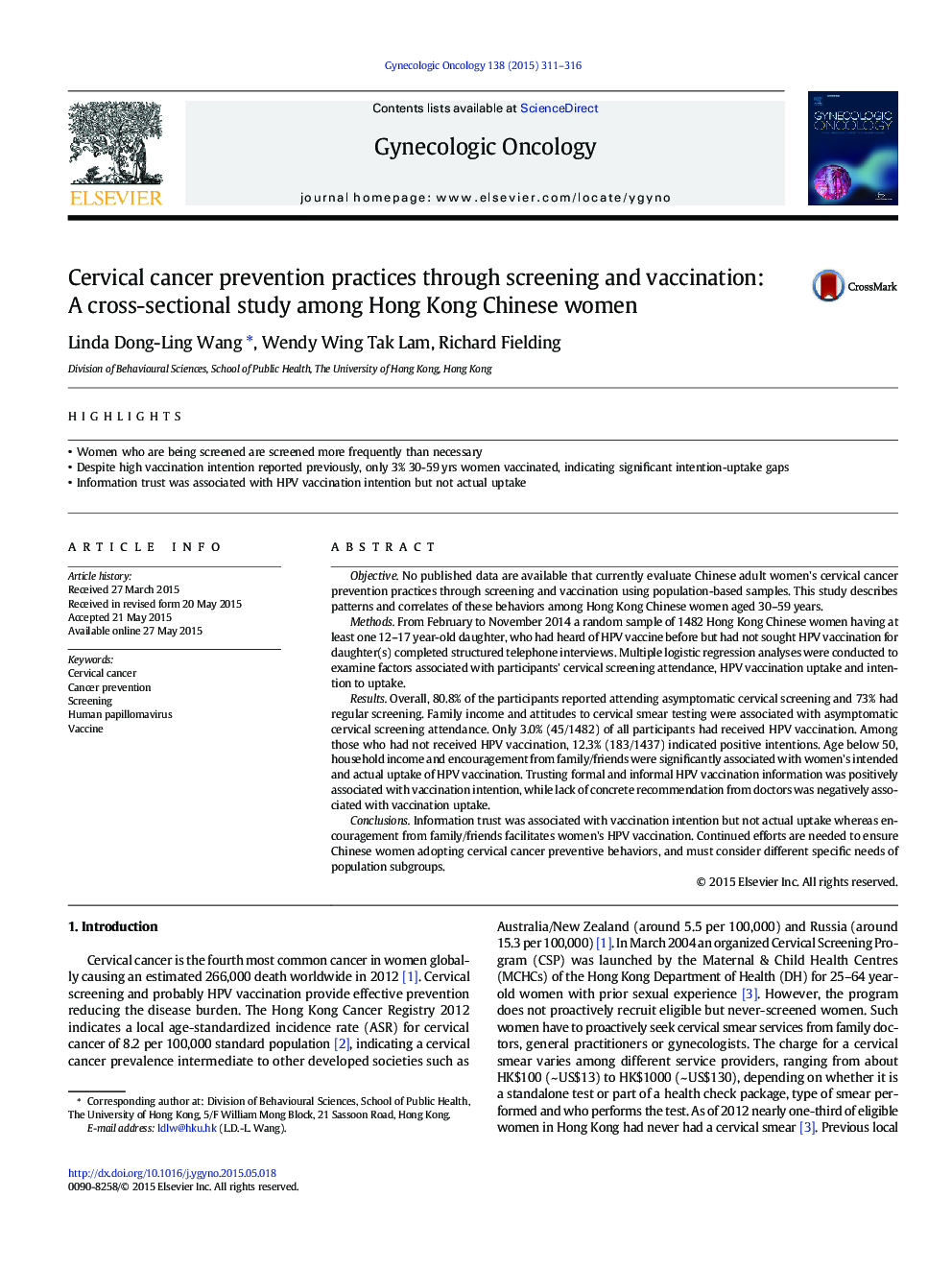| Article ID | Journal | Published Year | Pages | File Type |
|---|---|---|---|---|
| 3943153 | Gynecologic Oncology | 2015 | 6 Pages |
•Women who are being screened are screened more frequently than necessary•Despite high vaccination intention reported previously, only 3% 30-59 yrs women vaccinated, indicating significant intention-uptake gaps•Information trust was associated with HPV vaccination intention but not actual uptake
ObjectiveNo published data are available that currently evaluate Chinese adult women's cervical cancer prevention practices through screening and vaccination using population-based samples. This study describes patterns and correlates of these behaviors among Hong Kong Chinese women aged 30–59 years.MethodsFrom February to November 2014 a random sample of 1482 Hong Kong Chinese women having at least one 12–17 year-old daughter, who had heard of HPV vaccine before but had not sought HPV vaccination for daughter(s) completed structured telephone interviews. Multiple logistic regression analyses were conducted to examine factors associated with participants' cervical screening attendance, HPV vaccination uptake and intention to uptake.ResultsOverall, 80.8% of the participants reported attending asymptomatic cervical screening and 73% had regular screening. Family income and attitudes to cervical smear testing were associated with asymptomatic cervical screening attendance. Only 3.0% (45/1482) of all participants had received HPV vaccination. Among those who had not received HPV vaccination, 12.3% (183/1437) indicated positive intentions. Age below 50, household income and encouragement from family/friends were significantly associated with women's intended and actual uptake of HPV vaccination. Trusting formal and informal HPV vaccination information was positively associated with vaccination intention, while lack of concrete recommendation from doctors was negatively associated with vaccination uptake.ConclusionsInformation trust was associated with vaccination intention but not actual uptake whereas encouragement from family/friends facilitates women's HPV vaccination. Continued efforts are needed to ensure Chinese women adopting cervical cancer preventive behaviors, and must consider different specific needs of population subgroups.
